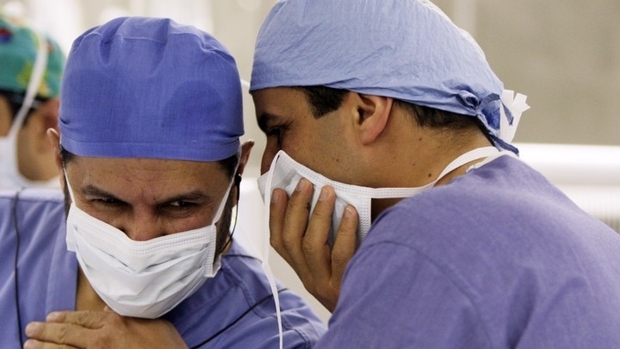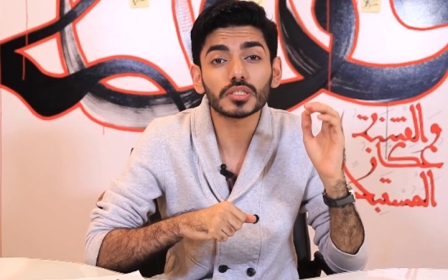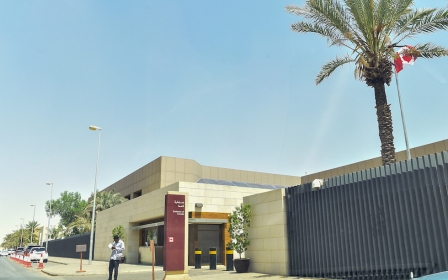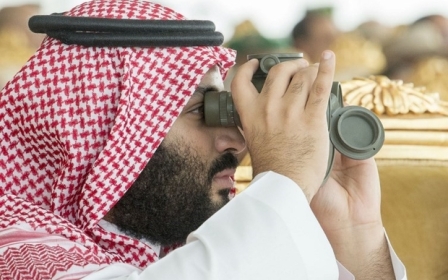'Huge blow': Saudi-Canada row throws both health-care systems into chaos

MONTREAL, Canada – The diplomatic row between Canada and Saudi Arabia has left both countries scrambling to contain major disruptions to their health-care systems.
Earlier this month, after Canada’s minister of foreign affairs drew ire from the Saudi government for calling for the release of jailed Saudi human rights activists, the kingdom stopped funding scholarships and training programmes in Canada and recalled all Saudi students.
Our patients will be the first to continue to suffer if we do not complete our training
- Saudi doctor training in Canada
Just over 1,000 Saudi medical residents and fellows were given weeks to leave the country and pick up their training elsewhere, a directive that has left the students and their Canadian colleagues in a panic.
In Canada, where Saudi trainee doctors make up to 85 percent of the workforce in some hospitals and treat patients at no cost to taxpayers, surgeries have already been cancelled in at least one province.
The future of the doctors who were expected to return to Saudi Arabia with specialities in fields including paediatrics and oncology is also in limbo, as are the long-term implications for their future Saudi patients.
“I’ve never seen this before, to be honest,” Dr Nadia Alam, president of the Ontario Medical Association, told Middle East Eye this week.
In an apparent reprieve, the Saudi Ministry of Education sent a message to residents and fellows in Canada this week, saying they would now be permitted to continue their training programmes "until such time as they have obtained final admission into equivalent training programs in other countries".
But rather than clarifying the situation, health professionals told MEE they remain confused about whether the Saudi students will be allowed to complete their residencies or fellowships in Canada – or if they will have to repeat their training and tests in another country.
“Is it a U-turn? How many of us will have to leave? Will we be able to finish our studies? None of this is clear,” a Saudi doctor training in Canada told MEE on condition of anonymity.
Specialised medical training in Canada
Funded by the Saudi government, the decades-old postgraduate training scheme gives Saudi medical graduates an opportunity to receive specialised training in Canada. They’re called “visa trainees,” holding visas similar to student visas.
They work with us in the emergency departments, hospital wards, outpatient clinics for cancer treatment, kidney failure
- Nadia Alam, president of the Ontario Medical Association
Countries like Saudi Arabia and India have less robust training in medical specialties and that’s what pushes graduates to do residencies and fellowships in Canada, the US and the UK, said Ivy Bourgeault, a professor at the University of Ottawa and the Canadian Institutes of Health Research chair in Gender, Work and Health Human Resources.
Canada is a particularly popular destination for Saudi medical residents and fellows because, unlike the US and the UK, it does not require the students to retake strenuous qualifying exams for further study, requiring only tests showing language aptitude and understanding of basic anatomy and clinical aspects of care.
Bourgeault said Canada remains a third choice overall though, with more Saudi medical graduates generally going to the US and the UK for their training.
Many Saudi medical residents and fellows in Canada are in specialised fields or in medical research, and their training typically lasts several years.
“Canada gives us state-of-the-art training with minimum requirements to join that no other place in the world is giving us,” the Saudi doctor said.
“Our health sector is still developing and fragile. Many of our hospitals are depending on us returning after completion of our training in Canada to open new services highly needed for our Saudi patients.”
In 2017, about 800 visa trainees in Canada out of a total of around 2,300 were from Saudi Arabia, Bourgeault said.
So the swift change has set off tidal waves across the Canadian system.
“They work with us in the emergency departments, hospital wards, outpatient clinics for cancer treatment, kidney failure,” Alam explained.
“Because [the training] lasts so long and it’s individualised for each trainee – they’re irreplaceable. You can’t just take them like a widget and move them from one training programme to another.”
Students devastated, hospitals strained
In the weeks since the Saudi government’s order, very few Saudi students affected by the decision have openly spoken to the media about its impact on their lives.
A group called the Coordinating Committee for Saudi Students in Canada – which is advocating anonymously for Saudi students to be allowed to stay in the country – said on 18 August that more than 90 Saudi students have applied for asylum in Canada.
According to the committee’s website, a Saudi PhD student, known only as Mohammad A, applied for asylum when he couldn’t find another solution.
Many of our hospitals are depending on us returning after completion of our training in Canada to open new services highly needed for our Saudi patients
- Saudi doctor training in Canada
“I spoke to Saudi Arabia Cultural Bureau in Canada but sadly they refused all my attempts to stay in the country. They asked me to return to the country immediately or I could lose my scholarship grant permanently,” he said.
“Their tone was also aggressive and they added that anyone refusing to return maybe [sic] committing a treason for our nation and the royal family.”
For the medical trainees in particular, the recall is particularly difficult since they are already in “the most stressful period of time in a physician’s life,” said Bourgeault, the co-author of a recent article in The Lancet about Saudi medical residents and fellows in Canada.
By abruptly ending their training, Saudi Arabia has added even more personal and professional stress on them, she said.
“Personal [stress] because you’re having to move and figure out where you’re going to stay … and professional [stress] in the sense that you may or may not be able to finish.”
'All hands on deck'
On the Canadian side, the snap decision to withdraw so many medical residents has forced many medical practitioners to question how the Canadian system became so reliant on Saudi doctors in the first place.
Hospitals affiliated with Montreal’s McGill University were expected to lose about 20 percent of their staff, as 225 of 1,250 medical residents are Saudi trainees, according to the report in The Lancet. The University of Toronto also counts 216 Saudi residents and fellows.
In Nova Scotia, on Canada’s east coast, surgeries have already started to be postponed or cancelled outright because the recall is causing a doctors shortage, Alam said.
“Canada’s already facing a physician shortage right across the country. I know that many of the provinces have had trouble recruiting more physicians; it’s been all hands on deck for decades now,” she said.
“We do really need to look at how did we get here?” said Maria Mathews, a professor in the Department of Family Medicine at Schulich School of Medicine & Dentistry at Western University in Ontario.
“We have lots of doctors who have immigrated to Canada really hoping to practise here and be able to contribute … but so few opportunities to train in those residency positions,” she told MEE.
“Do we have the right balance between visa trainees and our own international medical graduates?”
Meanwhile, Alam said the Saudi medical system would also suffer the consequences of the government’s decision, since Saudi physicians won’t be able to go back and serve their communities as planned.
“My heart goes out to the patients and to the Saudi trainees themselves because they’re going to end up on the losing end of all of this.”
The Saudi trainee who spoke to MEE said he was most worried about his future patients.
“Recalling Saudi doctors from Canada would be a huge blow to the developing health sector in the kingdom,” he said. “Our patients will be the first to continue to suffer if we do not complete our training.”
Middle East Eye propose une couverture et une analyse indépendantes et incomparables du Moyen-Orient, de l’Afrique du Nord et d’autres régions du monde. Pour en savoir plus sur la reprise de ce contenu et les frais qui s’appliquent, veuillez remplir ce formulaire [en anglais]. Pour en savoir plus sur MEE, cliquez ici [en anglais].






